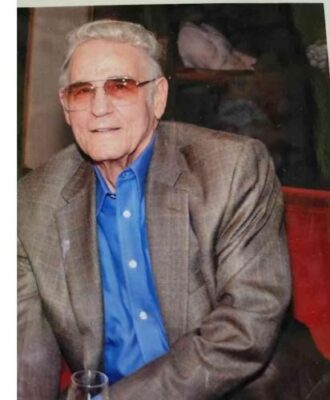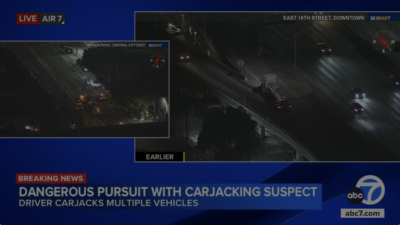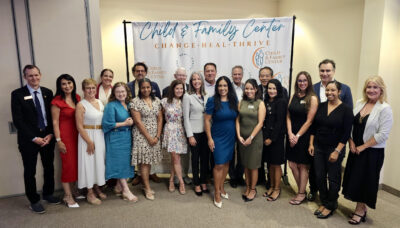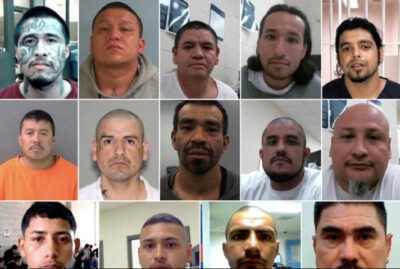Recent changes to the state’s conflict-of-interest law for politicians and two recent recusals prompted questions on what’s in place to keep pay-to-play from creeping into Santa Clarita policy-making and who’s watching the watchers on the dais at City Hall.
According to the city’s Communications Division, such calls are made by each official on their own based on the honor system without staff oversight.
That’s the law, according to city officials.
“In accordance with California law, it is ultimately the responsibility of each elected official to evaluate their own circumstances and determine whether a conflict of interest exists that would require recusal,” according to an email Wednesday from Carrie Lujan, director of communications for the city. “The city does not make these determinations on their behalf. While city staff can provide general guidance and refer officials to resources such as the Fair Political Practices Commission (FPPC), the final decision rests solely with the individual elected official.”
The city staff’s letter-of-the-law interpretation makes an understanding of such rules and regulations incumbent upon the city’s elected officials.
To that end, the city offers a Planning Commission 101 for newly appointed members, and Councilman Jason Gibbs said he recalled a similar instructional presentation from the city’s legal counsel upon joining the council.
The rules have changed recently and significantly for local officials, which already has prompted at least one recusal and may have played a role in another.
New law changes
In terms of guiding his philosophy on conflict of interest, Gibbs referenced the recently amended Levine Act, part of which has been part of the law of the land on campaign finance for decades.
Part of the state’s Political Reform Act, also known as Proposition 9, the laws were considered part of the state’s response to the Watergate scandal in 1974, taking aim at corruption and creating the Fair Political Practices Commission to provide oversight and enforcement.
The law, however, had a notable exclusion for “local government agencies whose members are directly elected by the voters,” which included governing bodies like the Santa Clarita City Council.
Senate Bill 1439, which took effect in 2023, already has influenced the development process in Santa Clarita.
The most recent changes, reportedly in response to reports of a corruption scandal on the L.A. City Council and with Anaheim’s recent stadium bids, represent significant revisions of the state’s conflict-of-interest laws, especially for locals.
In addition to making council members accountable to the law and setting a $250 threshold for donations, which was raised to $500 this year, it states anyone who gave that much could not have business in front of that council member for one year prior to or after the donation.
Planning Commissioner Tim Burkhart mentioned a City Council campaign contribution before recusing himself from the discussion of a project in June.
Mayor Pro Tem Laurene Weste recused herself from the discussion of The Hartwell project in May.
The move followed an acknowledgement she had negotiated with the developer on behalf of the city for the plans. But she did not state the specific reason for her decision to recuse herself, mentioning on the dais only that it was out of “an abundance of caution.” She did not respond to a call seeking a request for comment on this story Monday.
Council reactions
Gibbs ticked off a list of five factors he said he considered based on the state laws, including financial interest and personal relationships.
“And so for me, I always look at … financial interest, personal relationships, whether it’s somebody that’s contributed to you and would benefit from some sort of contract, or things like that,” he said. He gave the specific example of reviewing grant donations.
“The couple of times that I’ve been involved with grading applications for grants from the city, if they have come from a nonprofit that I serve on an advisory board for, I’ll recuse from offering a grade just because, I don’t want the appearance of impropriety or show any conflict.”
Councilwoman Patsy Ayala said from her years of experience in Sacramento — she previously was a field representative for two state lawmakers — she’s very familiar with the rules and regulations from the FPPC.
She said she has not experienced a conflict of interest since joining the Planning Commision for the city last year, prior to her November election to the City Council.
She also mentioned her husband’s work in terms of things she’s mindful of when considering if a potential conflict of interest may exist on a plan or project.
“I think the main thing is that we are there to make decisions on behalf of our residents and for the city,” she said. “And there are general rules in the (FPPC) and I think they are there for a reason … and I’m very respectful of those, and that’s the bible I follow for conflict of interest.”
She added another potential conflict Mayor Bill Miranda also brought up: If a council member decides to take a public stand on an issue or influence a discussion before it takes place publicly, then that could be grounds for recusal.
“If you’re going to have a discussion on an item, you shouldn’t be committed one way or the other until you hear all the discussion,” Miranda said. “Otherwise, why are we having it?”
Neither Miranda nor Councilwoman Marsha McLean saw an inherent conflict in an official accepting a donation.
McLean said the city attorney is there to answer questions when there is one, but also she was under the impression it was the city attorney’s office that made the call on recusal, she said in a phone interview Friday.
“In order to run for public office, you need to accept donations, or you don’t have money to run, OK, so it’s up to the individual council person and their integrity to decide … if they’re going to look at a project on its merits and vote their conscience,” McLean said. “Which obviously I have done, because when you look at how many times when it says the council approved a project, if you look back, you’ll see, I did not vote to approve a project for a myriad of reasons.”
When asked whether a donation could be perceived as a conflict, she said she could “categorically state for those who are concerned that I will never vote on a project based on anyone’s donation to me. And that is clearly stated to anyone who donates.”








